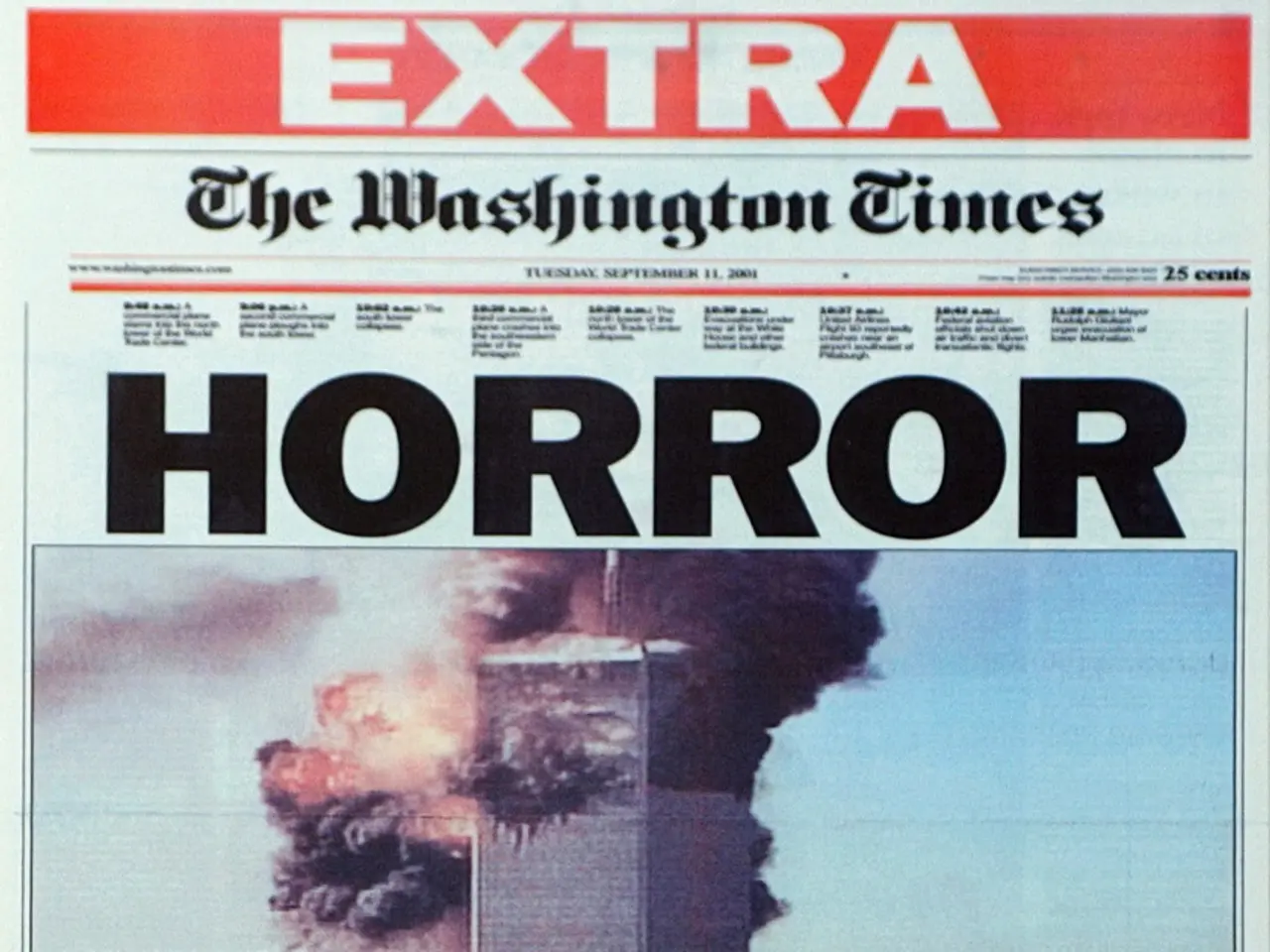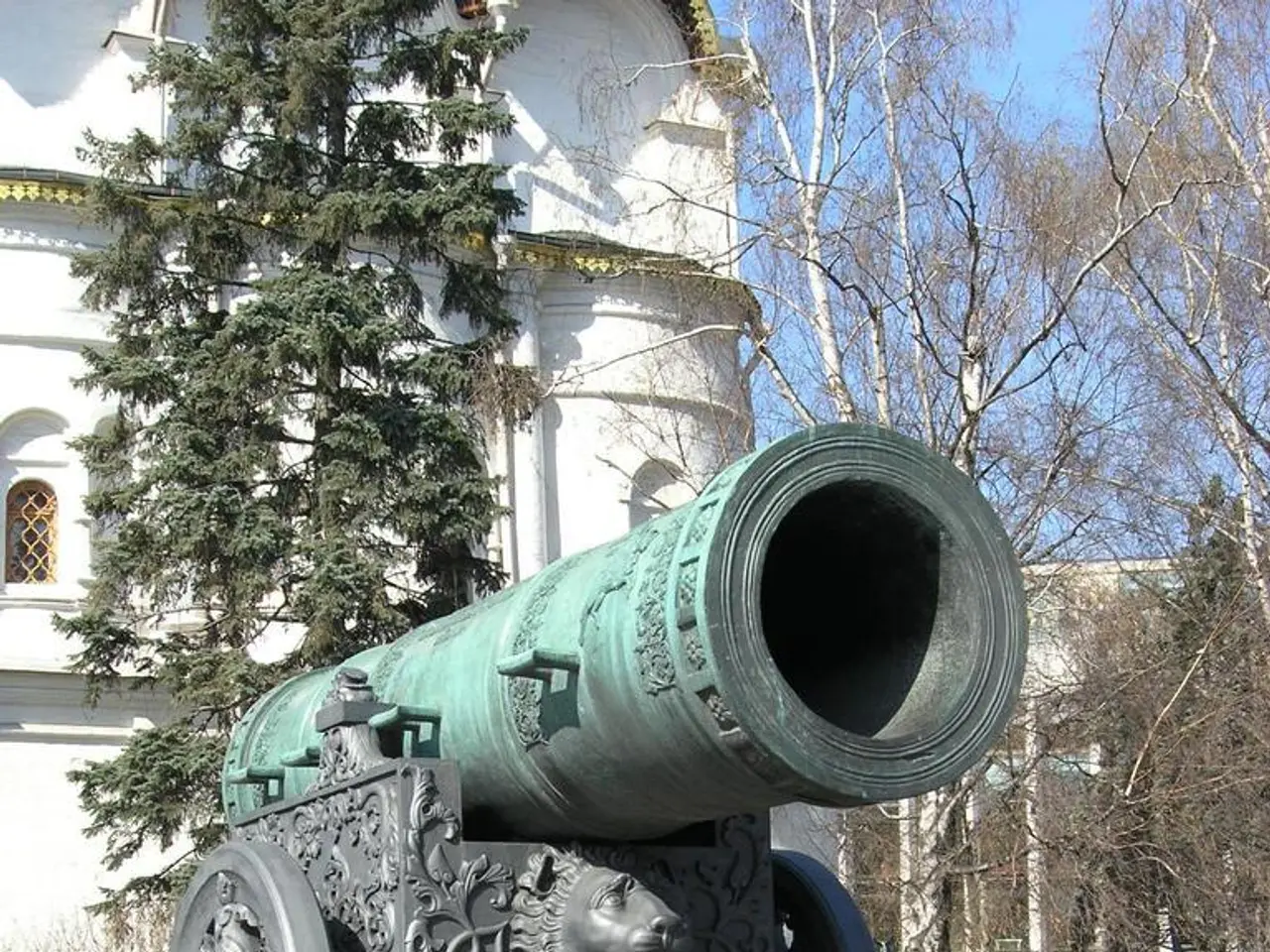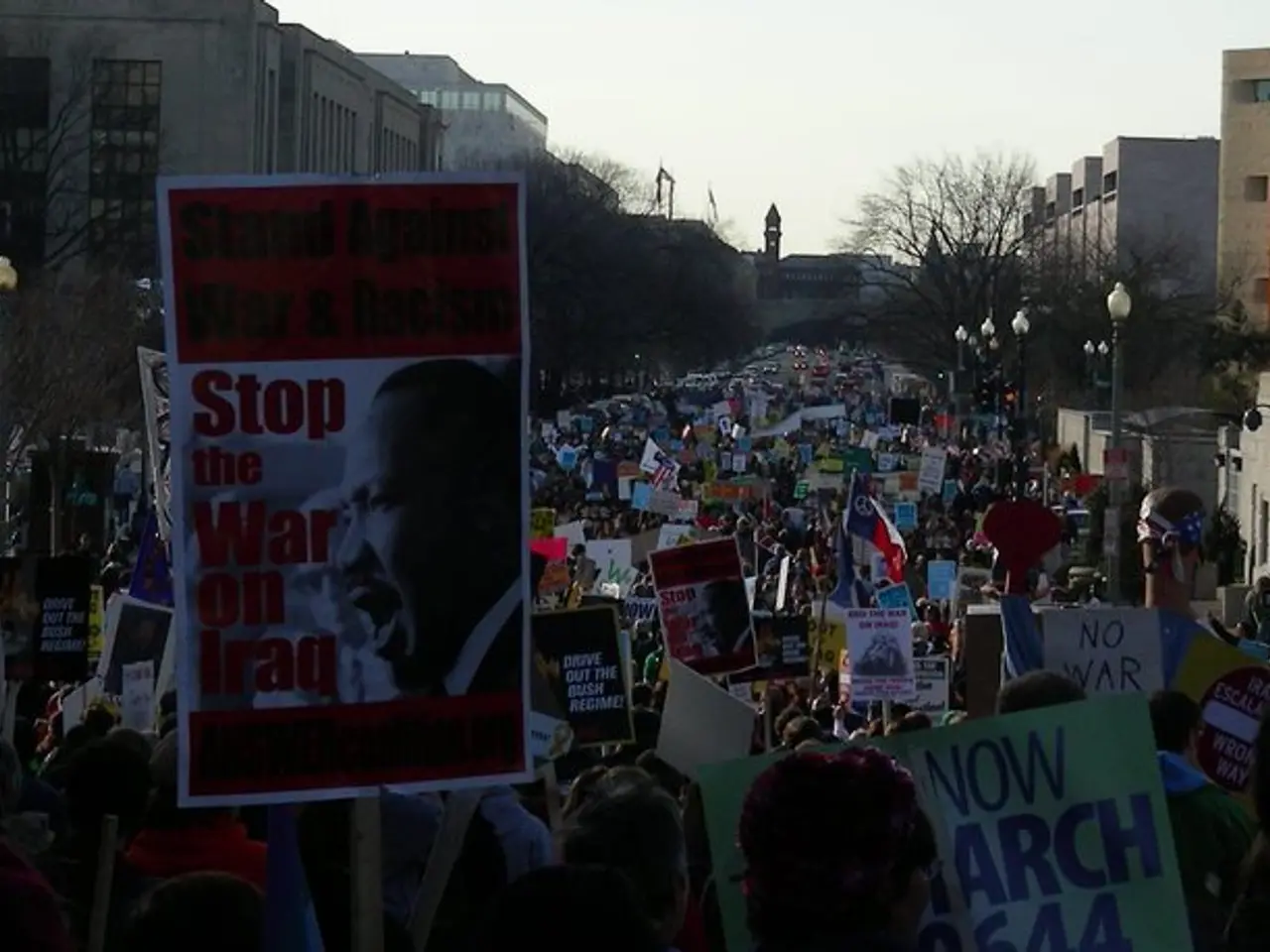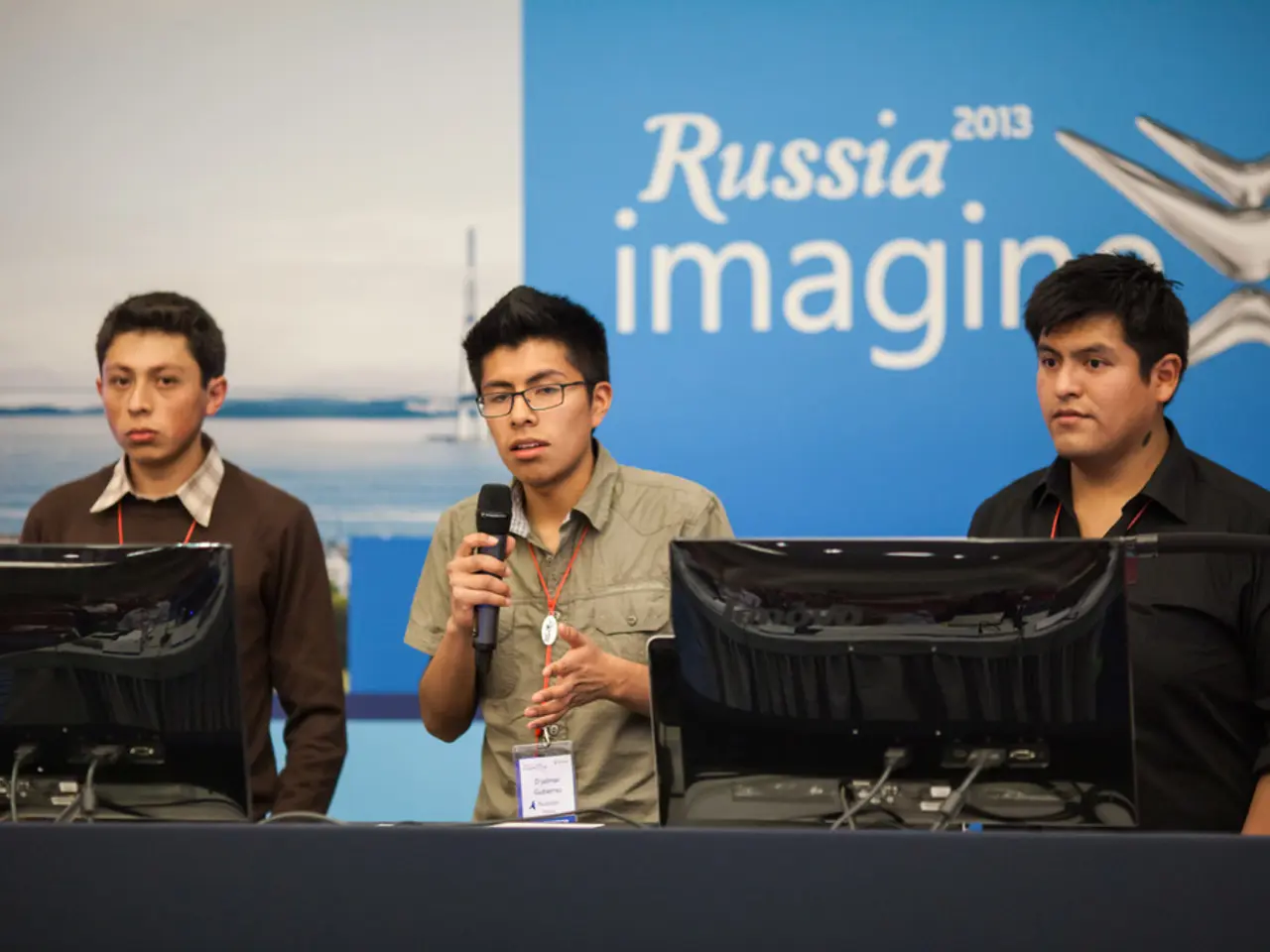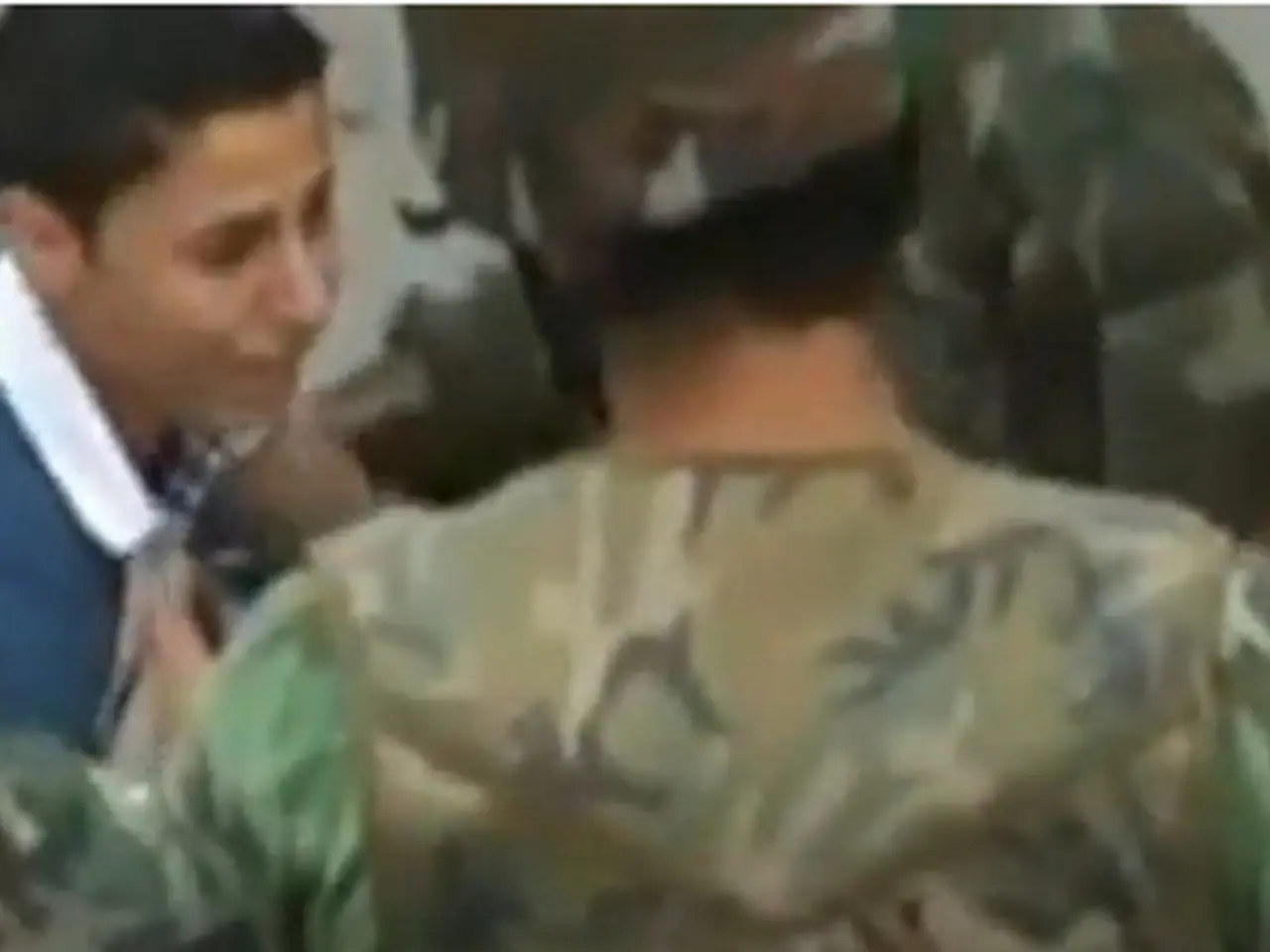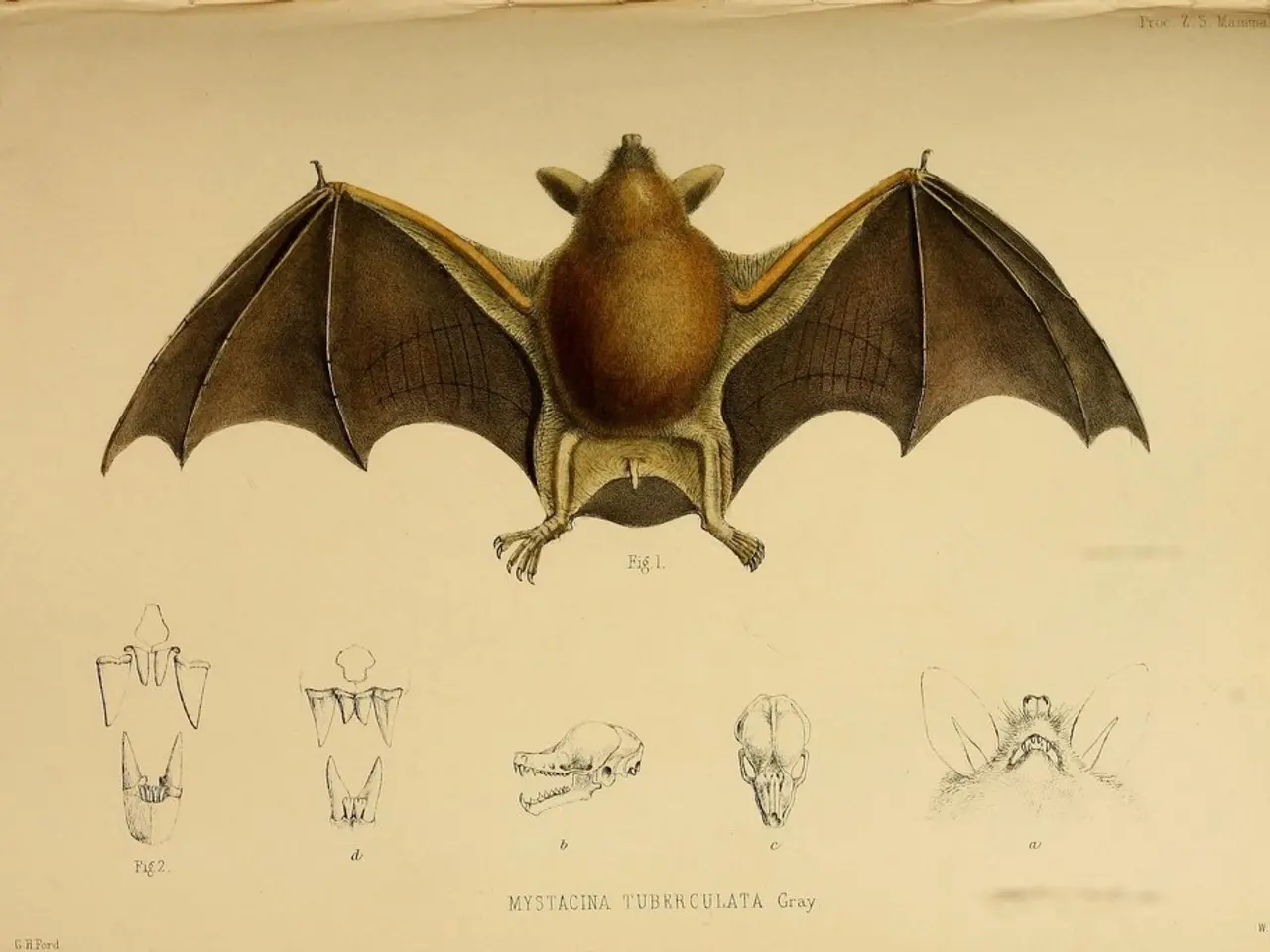Potential Deal: Recognition of part of Ukraine's territory by Putin in return for Trump's troop pullout agreement
The international community is watching with bated breath as the possibility of a meeting between US President Donald Trump and Russian President Vladimir Putin looms. This potential encounter, scheduled for 2025, could be a significant step in efforts to resolve the ongoing conflict in Ukraine. However, reports suggest that Russia may propose recognising parts of occupied Ukrainian territories in exchange for the withdrawal of troops from other regions, a proposal that is causing ripples of concern.
Future negotiations promise to be tense and fraught with challenges, reflecting the complexity of the contemporary international order. The Kremlin could use Ukraine's refusal of the proposal as a means to intensify informational pressure on Kyiv and its allies, creating a complex diplomatic situation and impacting the prospects for further peace talks.
Ukraine and European governments reject territorial concessions as a solution because they do not address Russia's systemic imperial ambitions. The United States, under the Trump administration, insists on Ukrainian agreement before any peace deal, rejecting concessions to Russia. Meanwhile, Russia remains uncompromising, demanding Ukraine cede all four illegally annexed oblasts as a precondition for a ceasefire, with broader demands for Ukraine’s demilitarization, "denazification," and alliance neutrality.
This proposal, if accepted, would legitimize the current occupation and set a precedent for further concessions. Most European governments and Kyiv are likely to reject this plan, allowing the Kremlin to potentially blame Ukraine for prolonging the war and maintain influence in the negotiations. Any steps towards recognizing occupied territories could undermine international law and lead to regional destabilization.
The ultimatum raises concerns in the US and Europe, as it is seen as an attempt to increase pressure on Ukraine rather than facilitate a peaceful resolution. European leaders advocate for the continuation of sanctions and diplomatic support for Kyiv. Trump's approach may aim to ease confrontation and return to dialogue with Moscow, which could elicit a mixed reaction both in the US and abroad.
Ukraine insists on the return of all occupied regions and the preservation of its borders, which remains a challenging task given the current geopolitical situation. The final decision depends on the balance of interests of world powers and Ukraine's internal position. Despite the challenges, the hope remains that the meeting between Putin and Trump will lead to a peaceful resolution and the end of the conflict in Ukraine.
- The debate over the proposed territory recognition in Ukraine, a controversial policy point in politics, is set to be a central focus of war-and-conflicts discussions, given the international community's interest in resolving the ongoing conflict.
- The upcoming meeting between US President Donald Trump and Russian President Vladimir Putin in 2025, while promising to impact policy-and-legislation and general-news, could either pave the way for a peaceful resolution or escalate the ongoing conflict in Ukraine, depending on the decisions made.
